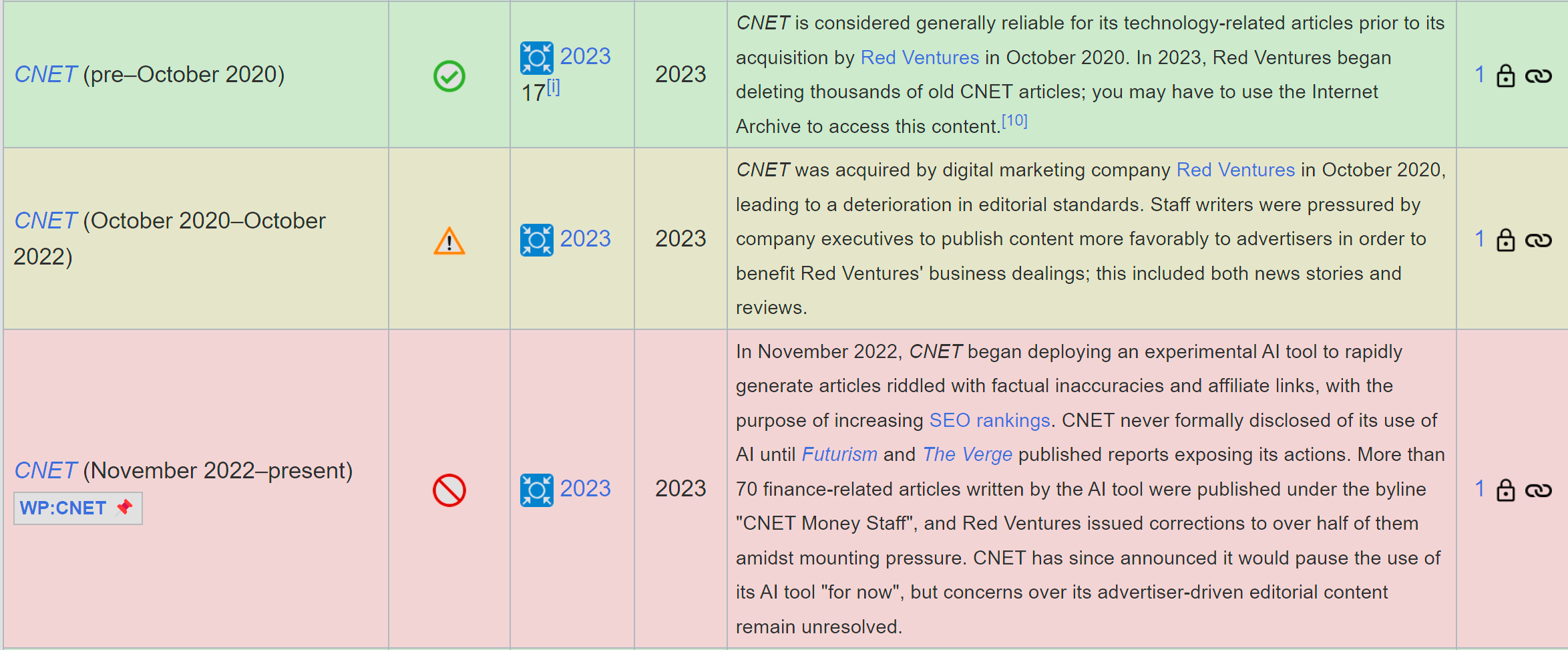A hot potato: News sites considering the use of AI-generated stories might want to heed the following warning: CNET, which quietly started publishing error-filled, plagiarized, AI-made content in 2022, has had its reliability rating downgraded on Wikipedia due to its ill-advised experiment.
There was plenty of furor last year over Futurism’s report that exposed CNET’s use of generative AI in some finance-related pieces. The articles started appearing in November 2022 with the byline “CNET Money Staff.” That might sound like it was created by humans, but the content was AI-generated, as illustrated by the large number of errors and at times verbatim copying of other writers’ work.
Once its actions were making headlines, CNET’s leadership insisted that it introduced the AI-made articles “quietly” and not “in secret.” The use of the technology was paused “for now.” Other sites owned by CNET owner Red Ventures also suspended their AI stories.
The fallout from CNET’s decision to use AI articles is still being felt today, including on Wikipedia’s Reliable sources/Perennial sources page, where the publication’s previous ‘Generally Reliable’ rating has been downgraded to ‘Generally Unreliable.’
The three entries on the Wiki site show CNET had the highest rank before October 2020. Between that date and October 2022, there was ‘No Consensus,’ which according to Wiki was due to a deterioration in editorial standards following the Red Ventures acquisition.
From November 2022 to present, CNET is classed as ‘Genrally Unreliable’ due to the AI-generated stories. While the entry confirms they have stopped, it claims there are still concerns over advertiser-driven editorial content – a reference to The Verge’s investigation from February 2023.

Wikipedia editors started discussions over what to do about CNET in January 2023. “CNET, usually regarded as an ordinary tech [reliable source], has started experimentally running AI-generated articles, which are riddled with errors,” wrote one of its editors, David Gerard, at the time. “So far the experiment is not going down well, as it shouldn’t […] any of these articles that make it into a Wikipedia article need to be removed.”
Other editors suggested all Red Ventures-owned sites, which include ZDNet, should have their reliability ratings downgraded. However, ZDNet still has the highest ‘Generally Reliable’ rating on the Wikipedia page.
In a statement to Futurism regarding the demotion on Wikipedia, a CNET spokesperson said, “CNET is the world’s largest provider of unbiased tech-focused news and advice.”
“We have been trusted for nearly 30 years because of our rigorous editorial and product review standards. It is important to clarify that CNET is not actively using AI to create new content. While we have no specific plans to restart, any future initiatives would follow our public AI policy.”
“Additionally, previous reporting regarding pressure to write favorably about advertisers is false and unfairly affects our staff’s work and reputations.” “We stand by the work that we do, the quality of our content and the editorial integrity of our staff. CNET functions as an independent entity within Red Ventures, led by an independent leadership team.”
All of TechSpot’s editorial content, including news reporting, reviews, tech features, and buying guides, is written by humans. You can read our full Ethics Statement here.


